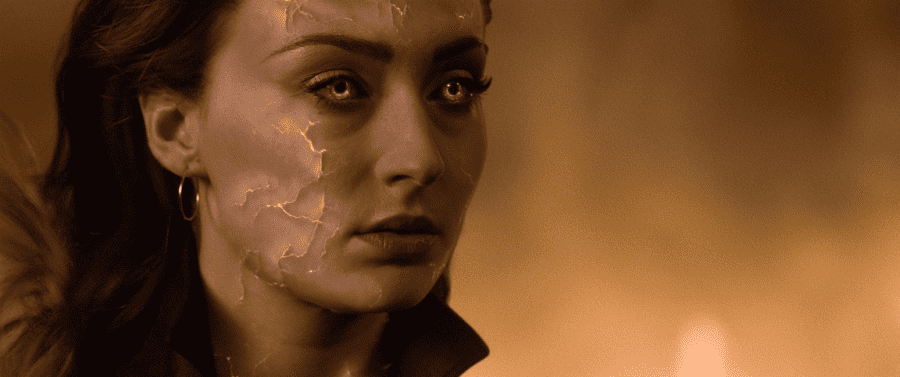The Splash Page: “Dark Phoenix” is a dull, disappointing dud
June 22, 2019
“Dark Phoenix,” the latest film in 20th Century Fox’s long-running X-Men franchise, is not worth seeing. I’m not sure it is even really worth talking about, even as a cautionary tale or a case study of a franchise gone bad. What “Dark Phoenix” deserves is to be forgotten, a footnote in the history of the first big superhero movie franchise.
In the 1990s, the X-Men were the biggest name in Marvel comic books. In those days, the Avengers were relaunched—twice—in simplified continuities, the second time as the “Ultimates,” because the name “Avengers” was seen as just not bankable enough, according to Christian Holub at Entertainment Weekly. The X-Men were the big A-list team in the Marvel Universe, popular enough not to get relaunched, and worth 20th Century Fox’s investment in the rebirth of the superhero movie, a genre killed in the early ‘90s by Warner Brothers’ failures with the last drops in the Batman and Superman franchises. It’s almost strange to look back at that time now, when Disney, Marvel’s parent company, has just bought Twentieth Century Fox and the rights to the X-Men movies. It’s strange to look back at that time, too, because “Dark Phoenix” is such a product of the old-fashioned X-Men franchise. It seems like a relic in the era of “Avengers: Endgame” and “Shazam!”
So much of “Dark Phoenix” is a rehash of something we’ve seen before that it feels stale from moment one. In fact, this movie is a re-telling of the “Dark Phoenix Saga,” one of the best-regarded stories in all of comic books, and also the source material for 2006’s “X-Men: The Last Stand,” a film that was regarded so poorly that it led to the prequel-reboot of 2011’s “X-Men: First Class” and its timeline-changing sequel “X-Men: Days of Future Past.” “Dark Phoenix” manages to neither learn from the mistakes of “The Last Stand” nor from the successes of “First Class.” From the former, it takes a fascination with long red coats instead of the iconic costume of Phoenix and a story focused on the changing personality of Jean Grey as she becomes overwhelmed with power, instead of her corruption coming from the cosmic alien force of the comic books. We do get a version of the Phoenix Force, but it is ill-defined and for much of the movie takes the form of a cloud that looks suspiciously like the last cosmic-force-turned-space-dust-villain, Galactus, from Fox’s previous superhero debacle, “Fantastic Four: Rise of the Silver Surfer.” Seemingly encountered for the first time in this film, the appearance of the Phoenix Force in the climax of the last film is never addressed. We also get alien villains in “Dark Phoenix,” but they are both dreadfully dull and take human forms except when standing in deep shadows, and if rumors are to be believed, are name-swapped Skrulls, a race of shape-changing aliens already brilliantly adapted for the big screen earlier this year in Marvel’s “Captain Marvel.”
From “First Class,” we get a cast who once had promise, but now come across as tired. The conflict between the ideologies of Magneto and Professor X was already old in 2006, and by this, the 7th “X-Men” film proper (not counting the three “Wolverine” movies and the two “Deadpool” flicks), there is nothing more boring than watching the two refer to each other as “old friends” as they play chess. A chief frustration in each of the four “X-Men” films starring this younger cast has been the insistence on setting each film a decade apart, leading not only to ridiculous age discrepancies (is Michael Fassbender really supposed to be 62? Is 29-year-old Nicholas Holt supposed to be in his mid-to-late 50s?), but also to a constant need to catch us up to speed. Every film in this series feels like a stealth reboot: “First Class” introduced a whole new team of X-Men in the 1960s, “Days of Future Past” changed the timeline and wiped away the first three X-Men films, “X-Men: Apocalypse” introduced a new cast of young heroes who were overlooked for a rehash of the Xavier/Magento story, and this film expects the audience to care about relationships and characters that were hinted at in the last film but never properly given time to mature before they are ripped apart. Jean Grey, our focal character, is acting “different,” though without any real introduction it is impossible to tell how exactly she was supposed to be acting before. The events of the last ten years boil down to a decade of vaguely defined superheroics, but the ten years our heroes have seemingly served together are never mentioned, and their team is split up before they can be fleshed out.
“Dark Phoenix” is a disappointment, full of fights shot in the dark that lead nowhere, characters who just say what they are feeling and a story worthy of not much more than the mid-season finale of a network TV series. In a year with “Captain Marvel,” another film set in the 1990s about shape-changing alien invaders searching for a mysterious power source and a female hero who learns to claim her cosmic energy powers, “Dark Phoenix” feels just plain dull. Action sequences boil down to magnetism (visually represented as Michael Fassbender straining his face and waving his hands) vs. telekinesis (visually represented as Sophie Turner straining her face and waving her hands.) Think of “Endgame” or “Shazam!,” movies with long fight sequences that focus on characters and plot points developed through action. There’s none of that here.
It’s a good thing that Marvel Studios has the rights to the X-Men again. It’s a good thing that it appears that we won’t be getting an X-Men film anytime soon, and when we do, it will be with a fresh take from the people who made Spider-Man good again after three disappointing films. My advice? Forget this film was ever made.











